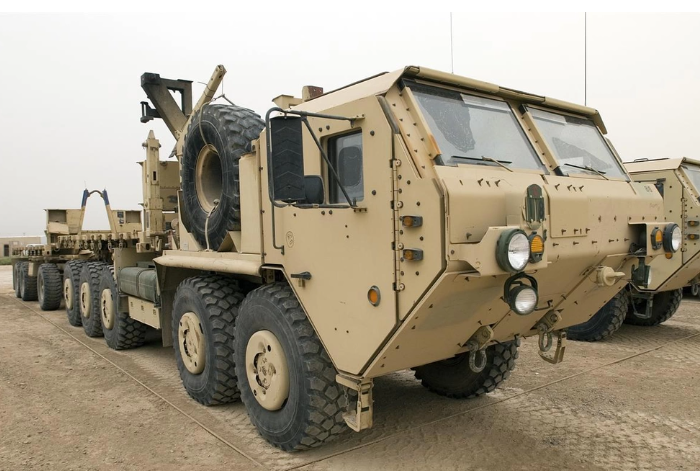Mountain View, CA (December 14, 2023)— The Department of Defense (DoD) operates a vast array of military vehicles crucial for both sustainment and combat operations. Traditionally, these vehicles have been reliant on human operators, who face natural limitations such as the need for rest, vulnerability to fatigue, and variability in training. In an effort to leverage significant advancements in the commercial autonomous vehicle sector and reduce risk to soldiers and their missions, the U.S. Army, in collaboration with the Defense Innovation Unit, has selected three vendors to develop autonomous navigation kits for the Ground Expeditionary Autonomous Retrofit System (GEARS) project.
Falling under the Army’s Autonomous Transport Vehicle System (ATV-S) program and PEO Combat Support and Combat Service Support, this innovative prototyping initiative will retrofit 41 Palletized Load System (PLS) vehicles with autonomous kits, with the option to expand to other military vehicles in the future.
“Commercial technologies and economies of scale exist that will enable the Army to close technological gaps,” said Kyle Bruner, Project Manager for Force Projection at PEO CS&CSS, reinforcing the importance and urgency of the GEARS project. “Now is an opportune time to modernize with ATV-S in support of Multi Domain Operations in contested environments.”
The integration of cutting-edge commercial autonomous technology represents a strategic move to extend the operational reach of Army forces, while simultaneously reducing risks for soldiers operating in dangerous environments.
"Commercial industry has revolutionized autonomous vehicle technology over the past 5-10 years," said Major Will Ryan, Autonomy Project Manager at the Defense Innovation Unit. "Incorporating these sophisticated systems into military contexts not only bolsters our tactical strengths but also paves the way for innovative strategies and operational efficiencies that save lives, reduce cognitive burdens, and free up Soldiers to execute more complex missions.”
Following a rigorous down-select process, a panel of Army leaders and technical experts selected three vendors from an initial group of 51 contenders to spearhead the GEARS project prototyping phase: Carnegie Robotics, Neya Systems, and Robotic Research. Over the next year, these companies will develop and test viable prototypes during operational, safety, cyber, and other critical component evaluations, with a goal of fielding an initial fleet of 41-vehicles across operational units before moving into larger scale production.
